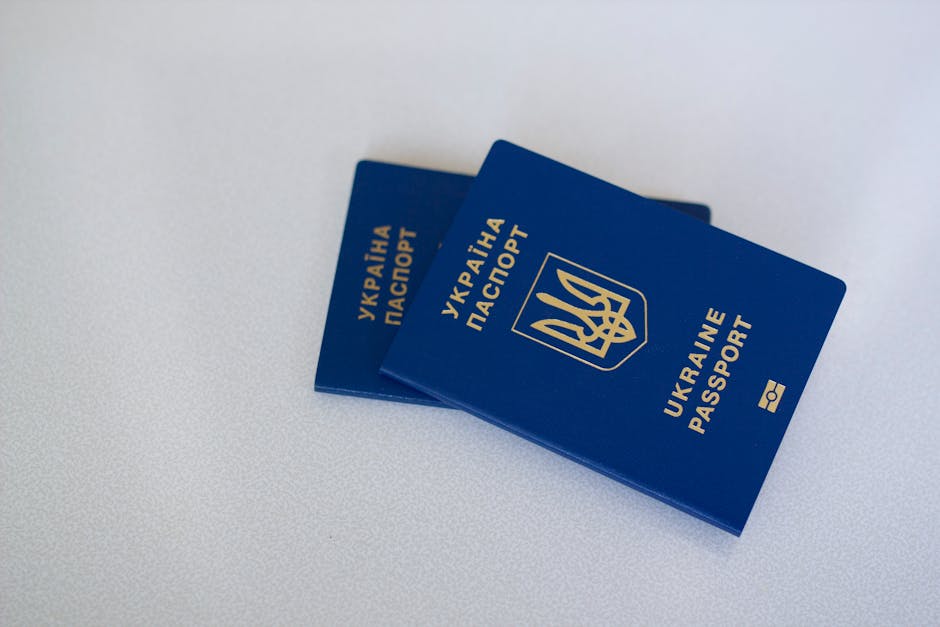Long-Term Malaysian Adventures: Your Guide to Residency and Visa Options

Long-Term Malaysian Adventures: Your Guide to Residency and Visa Options
Malaysia, truly Asia! It's a phrase that's stuck with me ever since my first backpacking trip there years ago. The vibrant culture, the incredible food, the stunning landscapes… it completely captivated me. And over the years, that initial spark has grown into a full-blown desire to spend extended periods exploring everything Malaysia has to offer. If you're feeling that same pull, you're probably wondering about long-term travel options, residency, and those all-important visas. Let me share my experiences and insights into navigating this exciting world!
Why Choose Malaysia for Long-Term Travel?

Before we dive into the nitty-gritty of visas, let's quickly touch on why Malaysia is such a fantastic destination for long-term stays. Trust me, there's more to it than just the delicious Nasi Lemak!
Cost of Living: Compared to many Western countries, Malaysia offers a significantly lower cost of living. You can enjoy comfortable accommodation, delicious meals, and exciting activities without breaking the bank. This is a huge factor when considering a longer stay.
Cultural Diversity: Malaysia is a melting pot of cultures – Malay, Chinese, Indian, and indigenous groups all contribute to its unique identity. This diversity is reflected in the food, festivals, architecture, and traditions. It's an incredibly enriching experience to immerse yourself in such a vibrant mix.
Delicious Food: I mentioned Nasi Lemak, but that's just the tip of the iceberg! From street food stalls to high-end restaurants, Malaysia is a foodie paradise. Be prepared to indulge in everything from Char Kway Teow to Rendang to Roti Canai. My taste buds are watering just thinking about it!
Beautiful Landscapes: From the bustling city of Kuala Lumpur to the pristine beaches of Langkawi and the lush rainforests of Borneo, Malaysia offers a diverse range of landscapes to explore. You can go diving, hiking, or simply relax on the beach – the possibilities are endless.
Relatively Easy to Get Around: Malaysia has a well-developed infrastructure, including a good network of roads, trains, and airports. Getting around the country is relatively easy and affordable, making it ideal for exploring different regions.
Friendly People: Malaysians are known for their warmth and hospitality. I've always found them to be incredibly welcoming and helpful, making it easy to settle in and feel at home.
Exploring Your Visa Options: Finding the Right Fit

Okay, so you're sold on Malaysia. Now comes the crucial part: figuring out the visa situation. This can seem daunting, but I promise it's manageable. Here's a breakdown of the most common visa options for long-term stays, based on my research and personal experiences:
- Social Visit Pass (Short-Term): This is your starting point.
This is the most common entry permit. Many nationalities can enter Malaysia visa-free for tourism purposes, usually for 90 days. Important: Check the latest requirements for your specific nationality! While you can explore the country, you cannot work or conduct business on a Social Visit Pass. It's purely for tourism or visiting family.
You might be able to extend this pass (usually for a further 30 days), but it's not guaranteed and you'll need a valid reason. Be aware that frequent "visa runs" (leaving the country and immediately returning) are often frowned upon by immigration authorities and could raise suspicion.
- Malaysia My Second Home (MM2H) Programme (Currently Suspended, But Keep an Eye Out!): This was once a popular option.
The MM2H programme allowed foreigners to live in Malaysia on a long-term basis (initially 10 years, renewable) with certain benefits. Unfortunately, it is currently suspended while the government reviews and potentially revamps it. However, keep an eye out for announcements regarding its reinstatement. When it was available, it required meeting certain financial criteria, such as having a fixed deposit in a Malaysian bank.
If and when it returns, MM2H will likely be the golden ticket for many. It offers a path to a more permanent life in Malaysia, with certain restrictions, of course. Watch for updates!
- Employment Pass: If you plan to work in Malaysia.
This is for foreigners who have secured employment with a Malaysian company. The company will typically sponsor your visa. The requirements for an Employment Pass vary depending on the position and the company. This is generally the most straightforward route if you're looking to work legally in Malaysia.
There are different categories of Employment Passes, often linked to your salary and the type of job you hold. Securing a job first is, obviously, essential for this route!
- Professional Visit Pass (PVP): For specific short-term assignments.
The PVP is designed for professionals who need to enter Malaysia for specific, short-term assignments, such as giving lectures, attending conferences, or providing specialist services. It's not a long-term residency option, but useful for short-term professional engagements.
- Student Pass: If you're pursuing education.
If you're planning to study at a recognized educational institution in Malaysia, you'll need a Student Pass. The institution will usually assist you with the application process. This is a great option if you want to experience Malaysian life while furthering your education.
- Dependent Pass: Linked to other visas.
This pass is for family members (spouse and children) of individuals who hold an Employment Pass or certain other long-term visas. It allows them to live in Malaysia while the primary visa holder is working or residing there.
Diving Deeper: The (Currently Suspended) MM2H Programme

Since the MM2H programme was so popular, let's delve a little deeper into what it entailed before its suspension. This will give you a good idea of what to expect if and when it's reinstated. Remember, the details may change, so always refer to official sources for the most up-to-date information.
When active, the MM2H program offered several key benefits:
- Long-term Stay: Typically a 10-year renewable visa.
- Financial Incentives: Reduced taxes on certain imported goods.
- Property Ownership: Allowed participants to purchase property in Malaysia (subject to certain conditions).
- Education for Children: Children could attend Malaysian schools.
Financial Requirements (Prior to Suspension - May Change): MM2H had some pretty specific financial requirements. For example, applicants were usually required to:
- Open a fixed deposit account in a Malaysian bank. The amount varied based on age (under 50 and over 50).
- Maintain a minimum balance in the account throughout the duration of the visa.
- Demonstrate a certain level of monthly income or pension from overseas.
Why the Suspension? The Malaysian government suspended the MM2H programme to review its terms and conditions. This was reportedly done to attract higher-quality applicants and potentially increase the economic benefits to the country. Hopefully, it will return soon with even better benefits!
Navigating the Employment Pass Route

If you're planning to work in Malaysia, the Employment Pass is your best bet. Here's a closer look at this route:
Finding a Job: The first step is to secure a job offer from a Malaysian company. Online job portals, recruitment agencies, and networking events can be valuable resources. Be prepared to tailor your resume and cover letter to the Malaysian market.
Employer Sponsorship: Once you have a job offer, your employer will typically handle the Employment Pass application on your behalf. They will need to provide documentation proving that they are a legitimate company and that they are hiring you for a skilled position that cannot be easily filled by a Malaysian citizen.
Categories of Employment Pass: As mentioned before, there are different categories of Employment Passes, generally linked to your salary and the skill level of the job. Higher-paying, more specialized roles often have a smoother application process.
Renewals: Employment Passes are typically issued for a period of one to two years and can be renewed as long as you remain employed by the same company. The renewal process is usually handled by your employer as well.
Tips for a Smooth Visa Application Process

No matter which visa route you choose, here are some general tips to make the application process as smooth as possible:
- Start Early: Don't wait until the last minute to start your visa application. Give yourself plenty of time to gather the necessary documents and complete the application forms.
- Be Organized: Keep all your documents organized and easily accessible. Make copies of everything and keep them in a safe place.
- Read the Instructions Carefully: Pay close attention to the instructions on the application forms and ensure that you provide all the required information accurately.
- Seek Professional Advice: If you're unsure about any aspect of the visa application process, consider seeking advice from a qualified immigration lawyer or consultant. They can provide expert guidance and help you avoid common pitfalls.
- Be Honest: Always be honest and upfront in your visa application. Providing false or misleading information can result in your application being rejected.
- Be Patient: The visa application process can take time, so be prepared to be patient. Don't be afraid to follow up with the immigration authorities if you haven't heard back within a reasonable timeframe.
Life in Malaysia: Practical Considerations

Beyond visas, it's worth thinking about the practical aspects of living in Malaysia long-term:
Accommodation: You can find a wide range of accommodation options in Malaysia, from apartments and condominiums to houses and villas. Prices vary depending on the location, size, and amenities. Websites like iProperty.com.my and PropertyGuru are good places to start your search.
Healthcare: Malaysia has a well-developed healthcare system with both public and private hospitals. Expats are generally advised to obtain private health insurance to cover their medical expenses.
Transportation: Public transportation in Malaysia is generally reliable and affordable, especially in major cities like Kuala Lumpur. You can use buses, trains, and taxis to get around. Owning a car is also an option, but be aware of the traffic congestion in urban areas.
Banking: Opening a bank account in Malaysia is relatively straightforward. You will need to provide your passport, visa, and proof of address. Major banks include Maybank, CIMB, and Public Bank.
Language: While Malay is the official language of Malaysia, English is widely spoken, especially in urban areas and tourist destinations. Learning some basic Malay phrases can be helpful, but it's not essential.
Final Thoughts: Embrace the Malaysian Adventure

Long-term travel in Malaysia is an incredible experience. Yes, navigating the visa process can seem a bit overwhelming at first, but with careful planning and research, it's definitely achievable. Remember to stay informed about the latest visa regulations and requirements, and don't hesitate to seek professional advice if needed. And most importantly, embrace the adventure and immerse yourself in the rich culture and stunning landscapes that Malaysia has to offer. Selamat Datang! (Welcome!)
Post a Comment for "Long-Term Malaysian Adventures: Your Guide to Residency and Visa Options"
Post a Comment